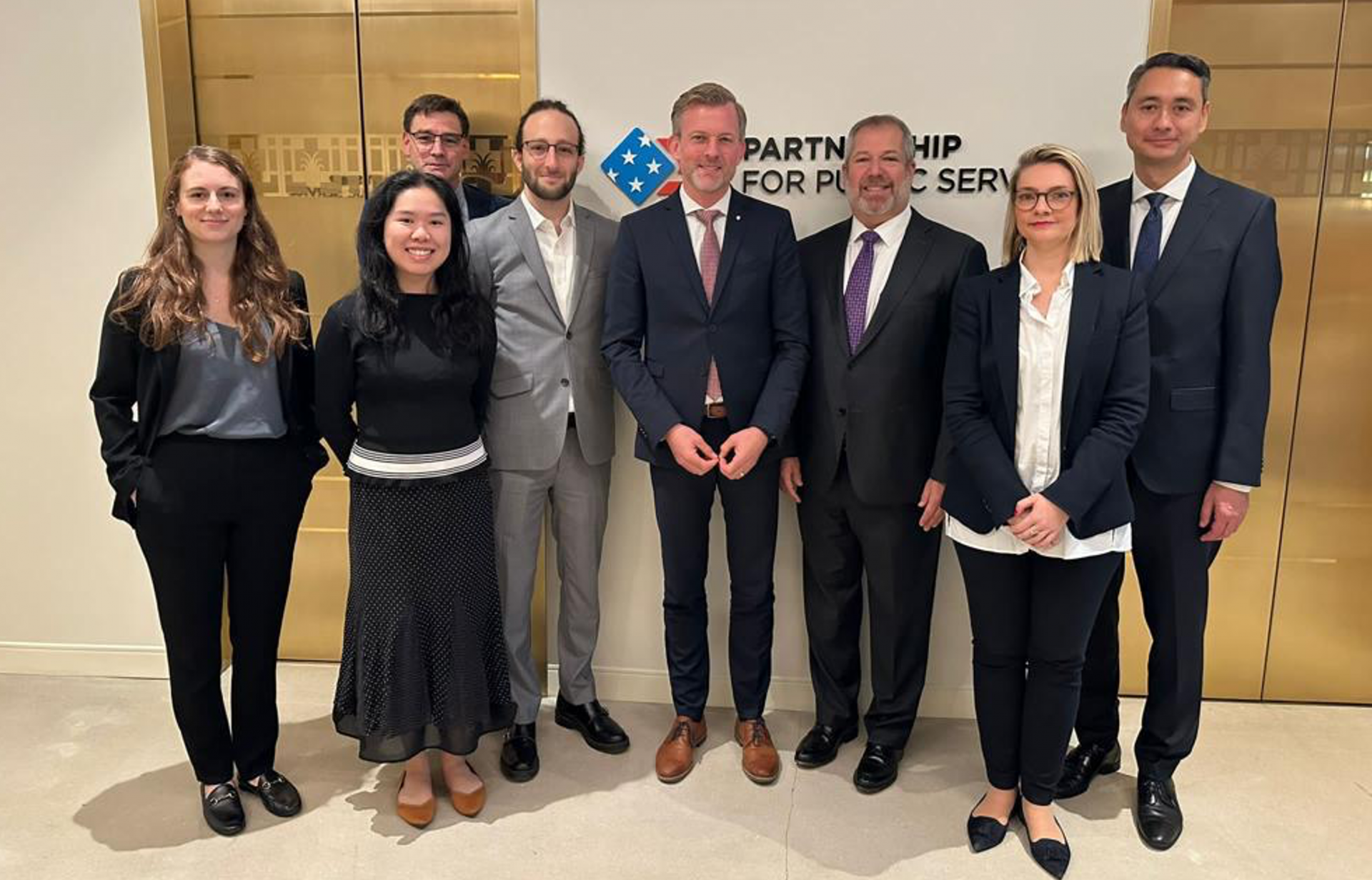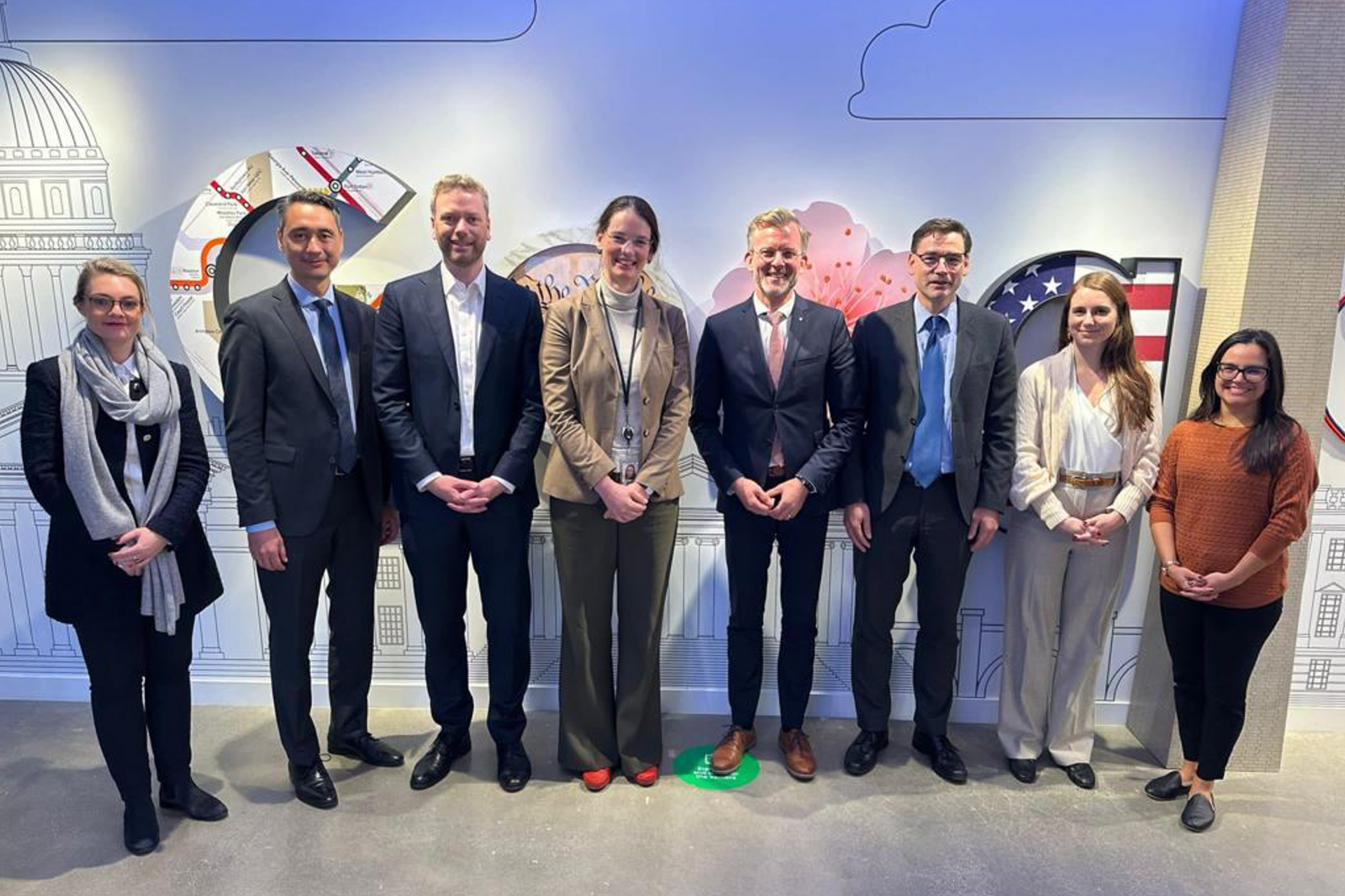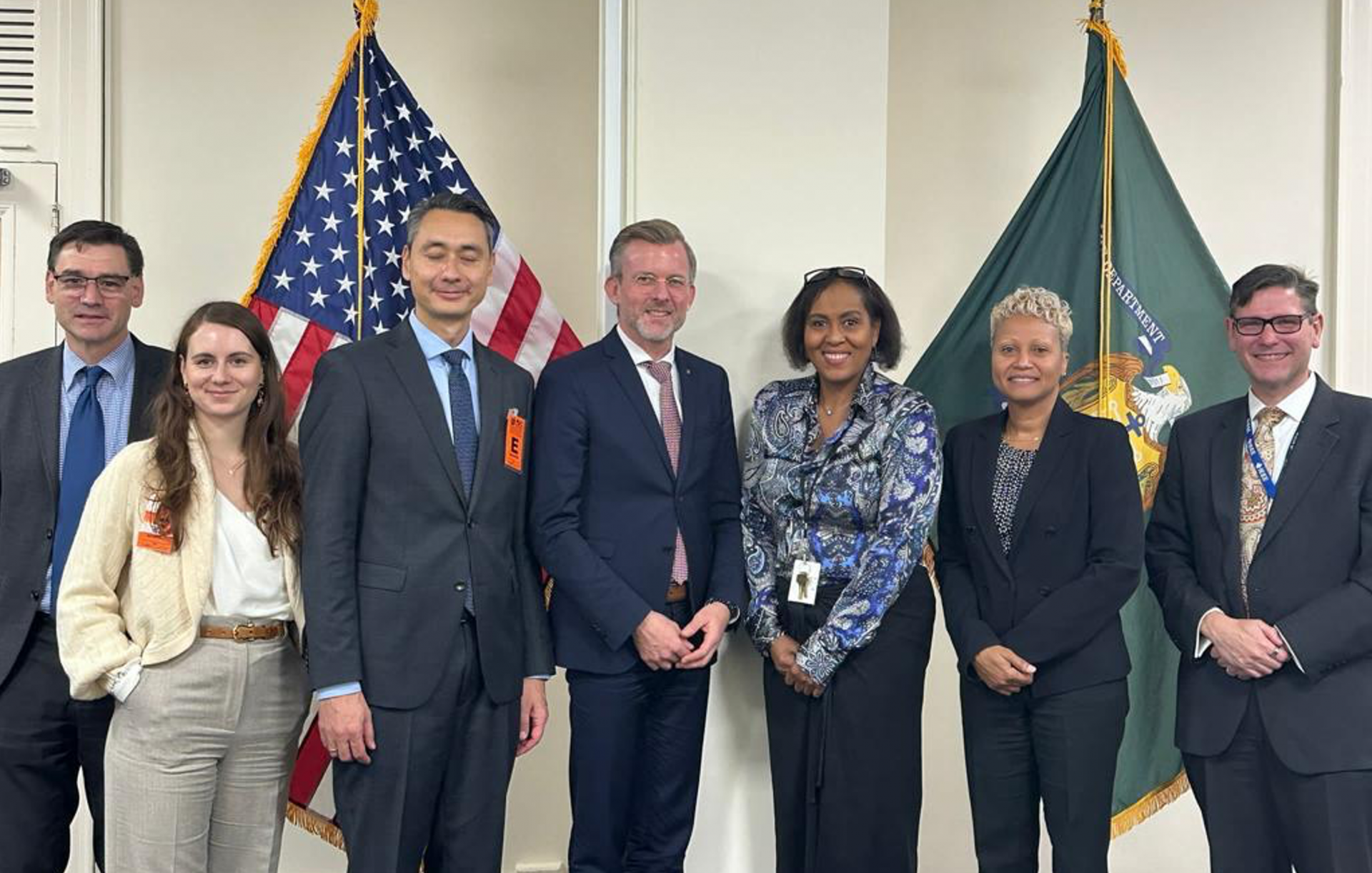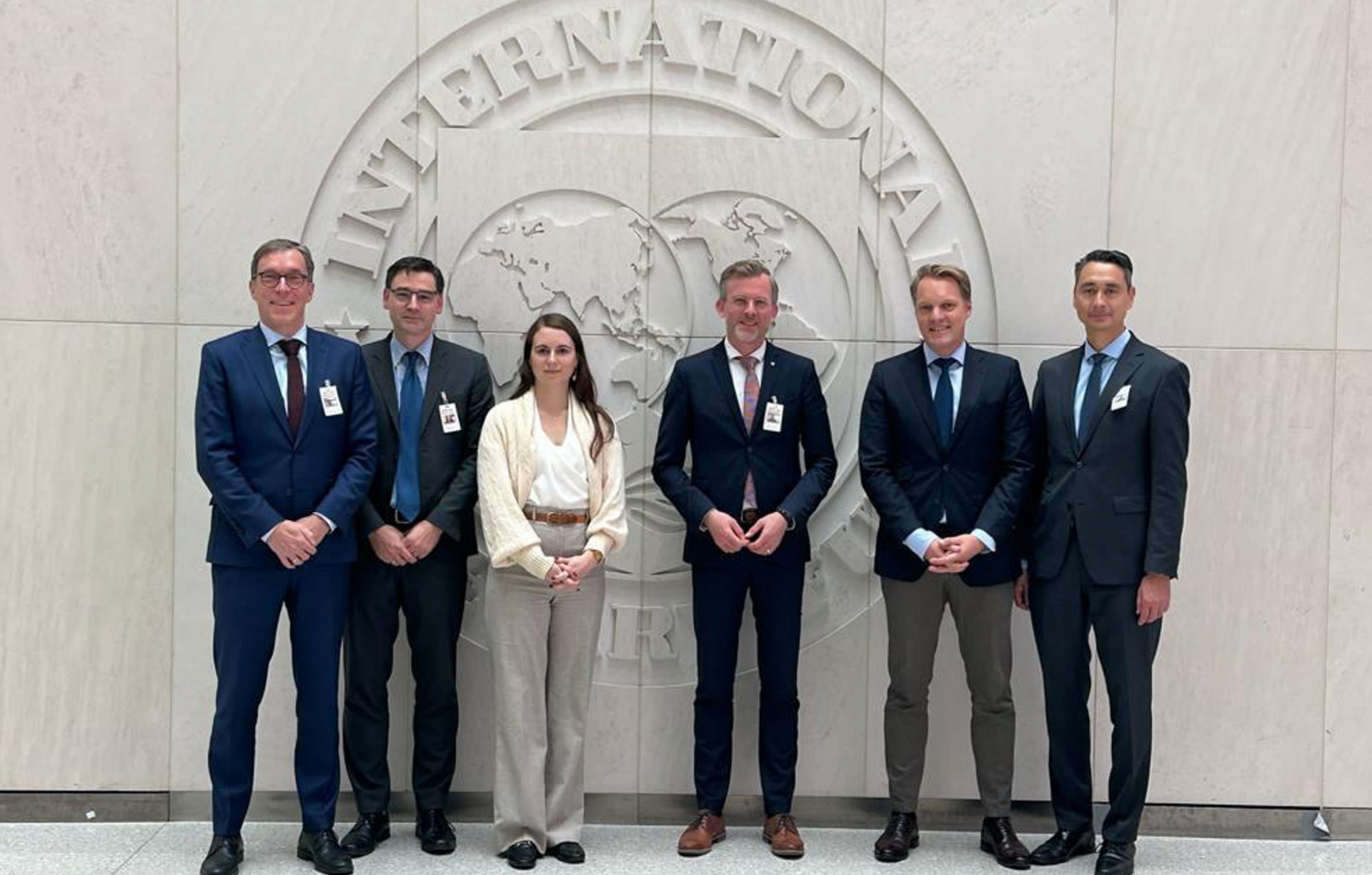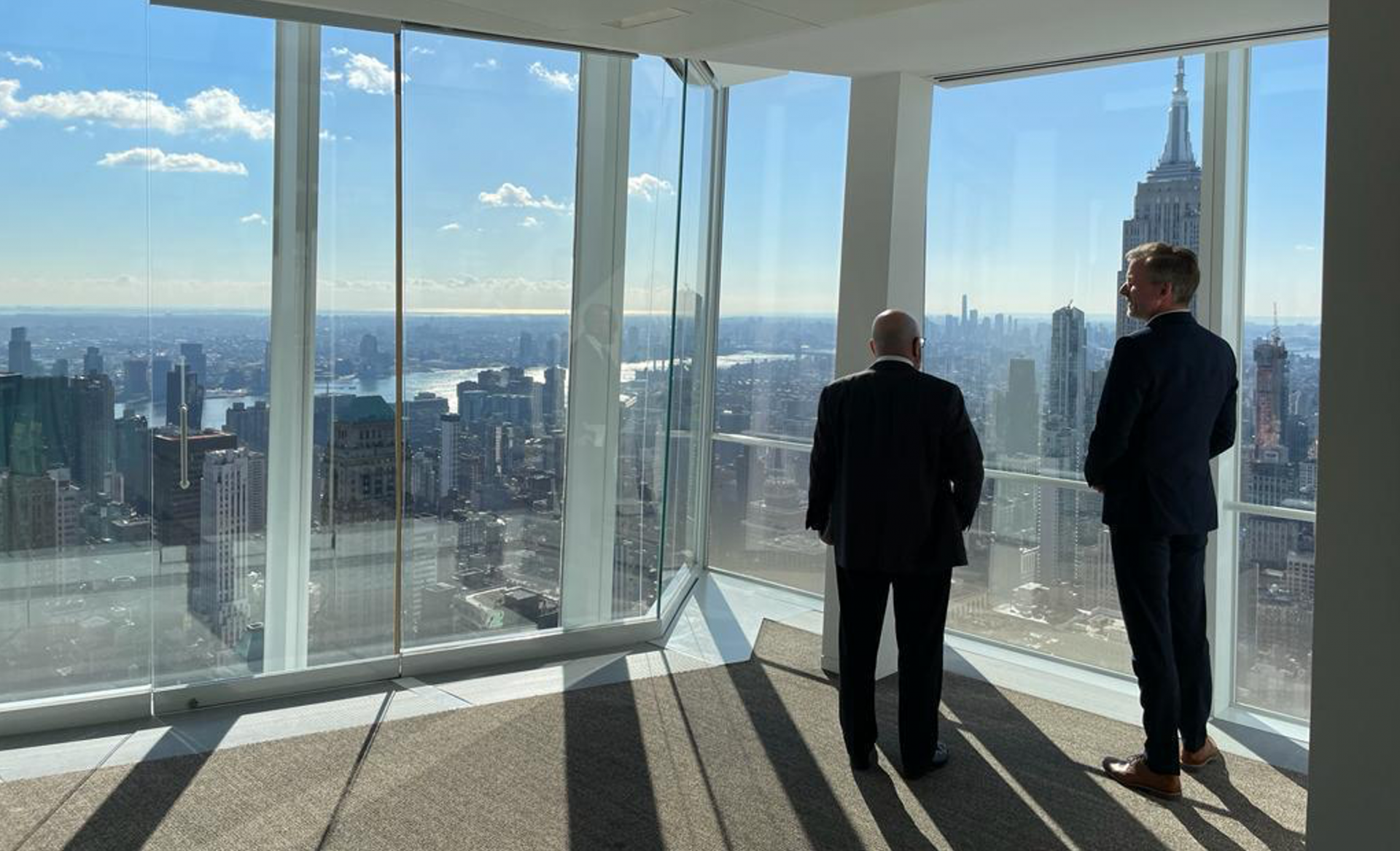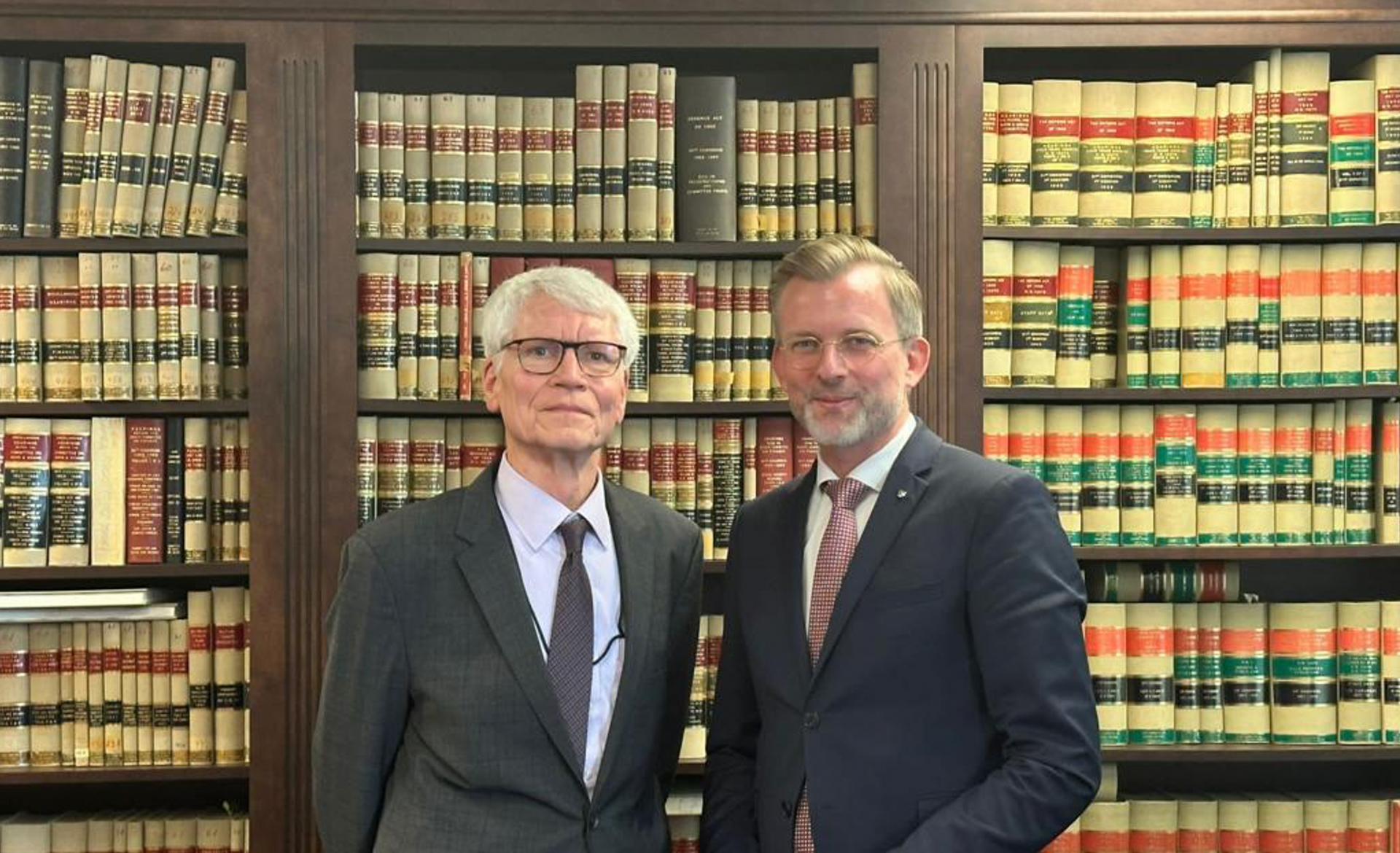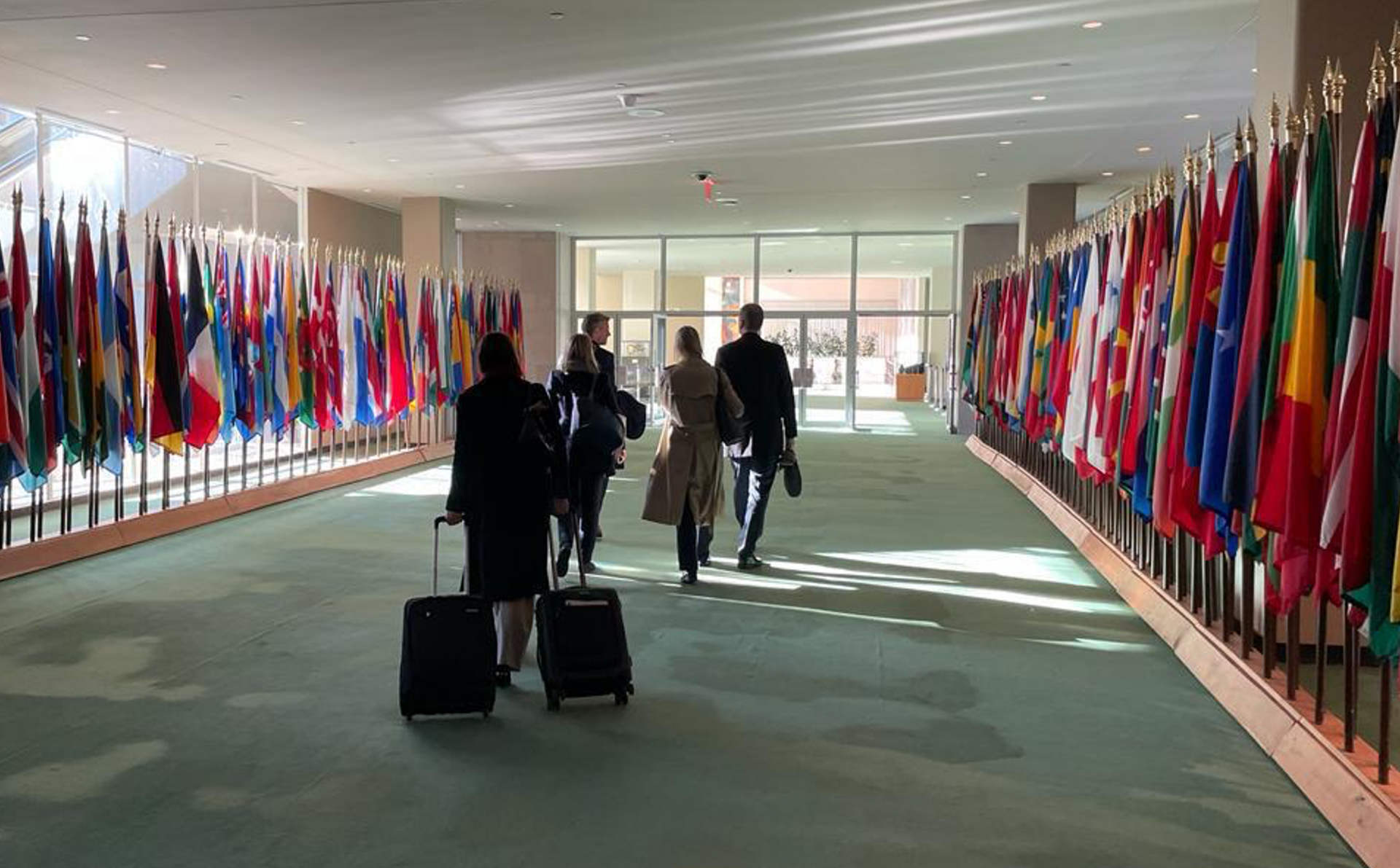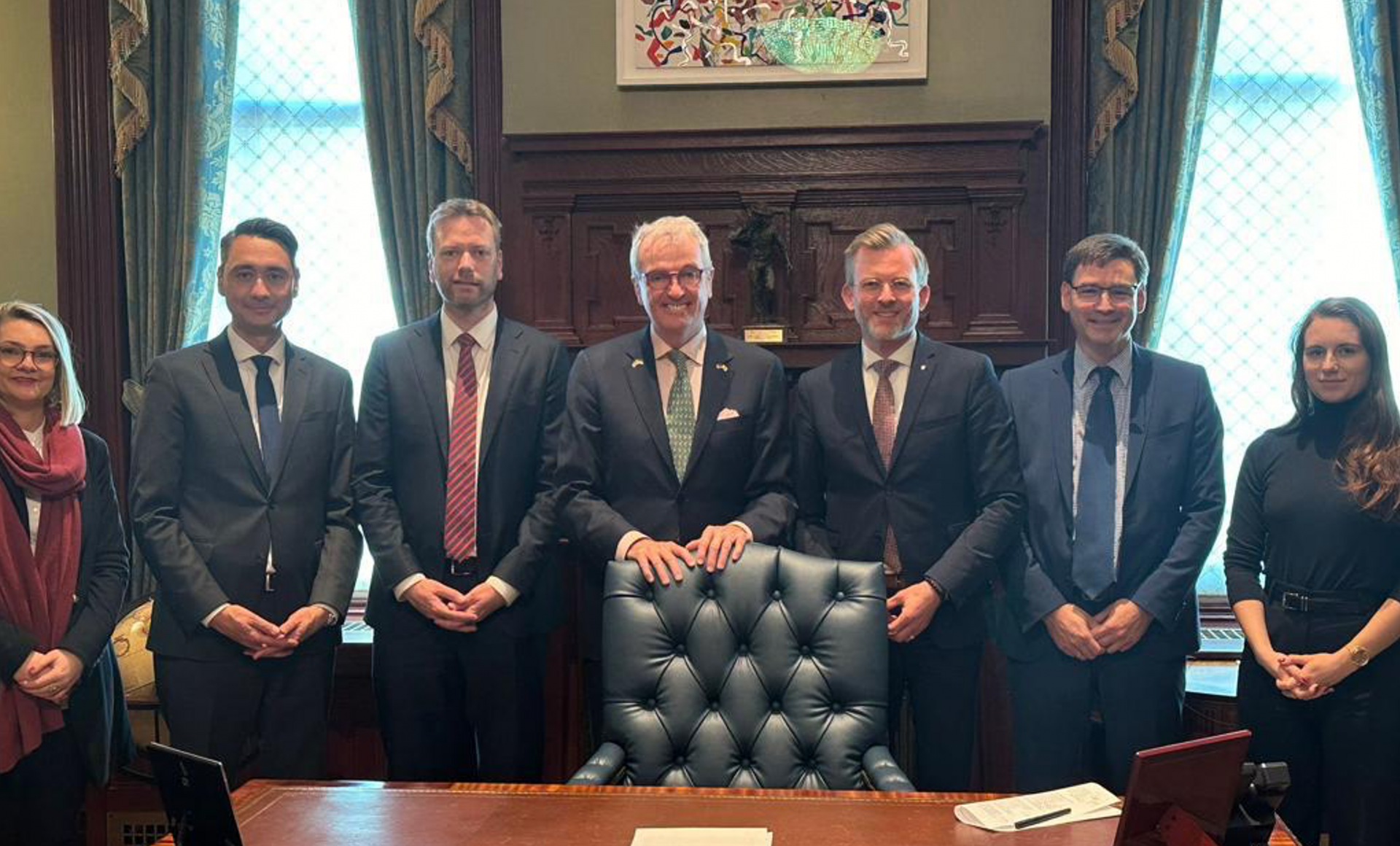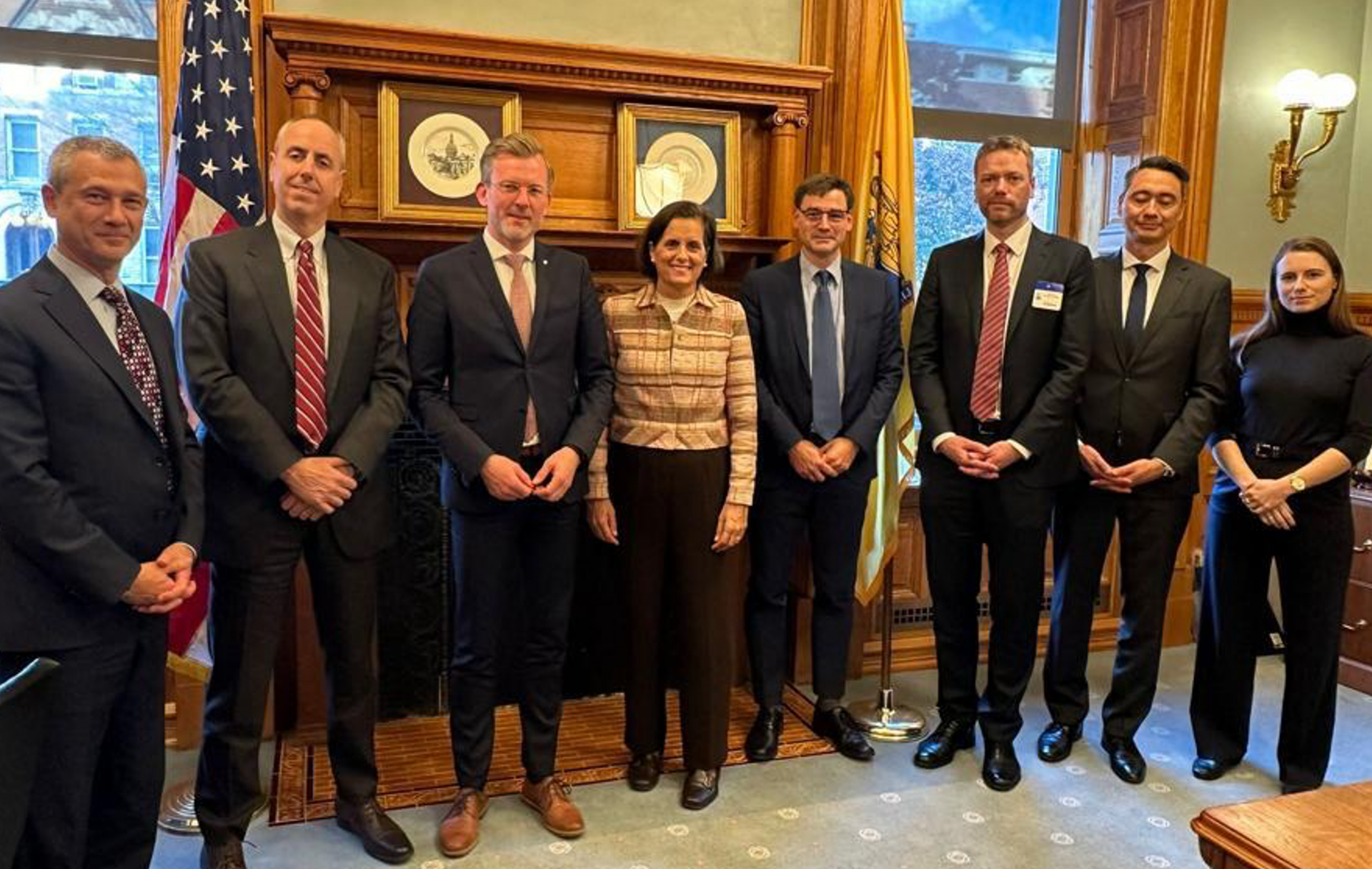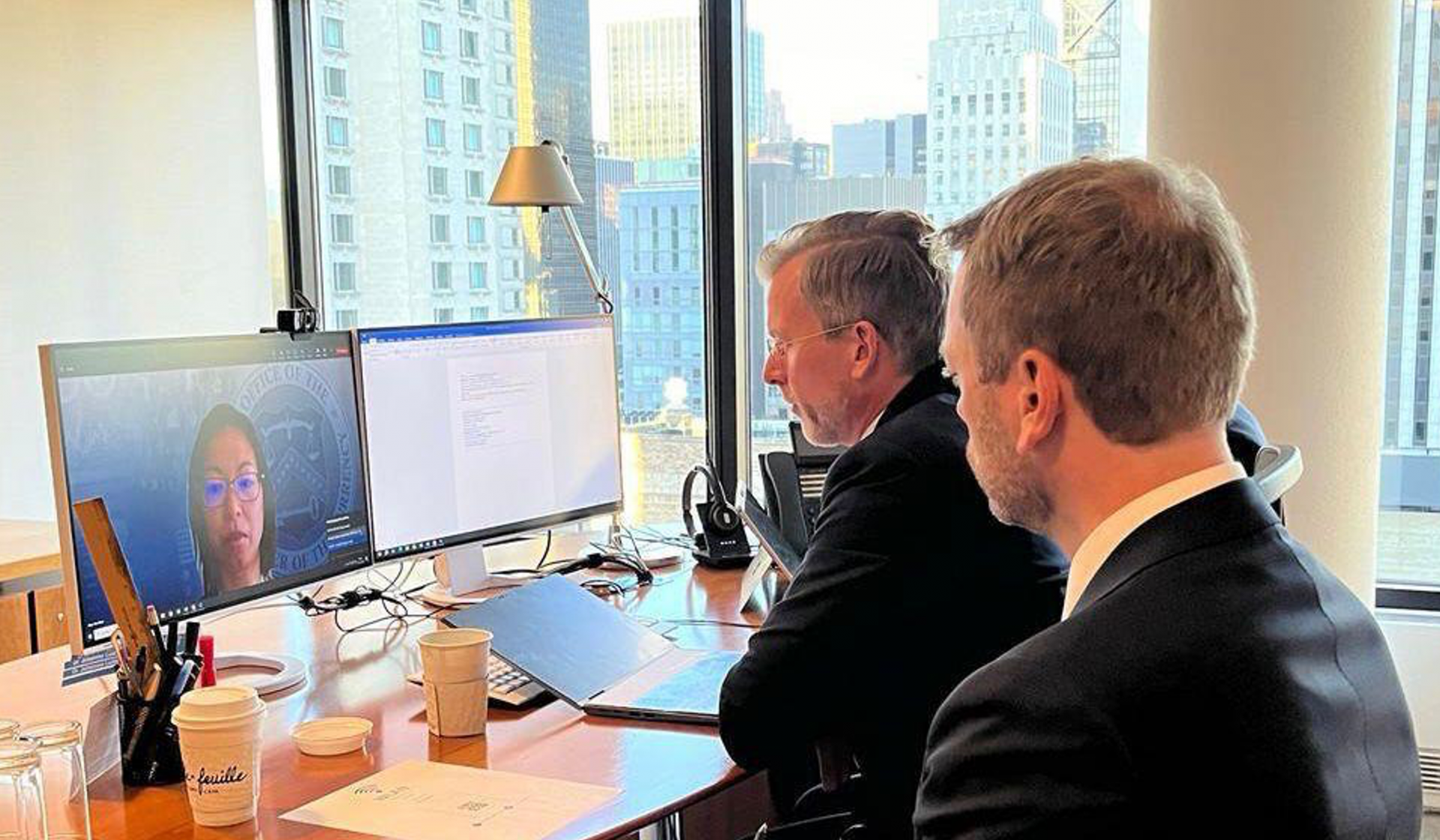
Modernization and digitalization of public administration
After a kick-off briefing at the embassy in Washington D.C., State Secretary Dr. Günnewig met with representatives of the Partnership for Public Service – a leading NGO that pursues the goal of modernizing public administration. “Public service must perform increasingly extensive and complex tasks with the same or, in some cases, even fewer personnel,” they agreed. “The use of modern technologies can help with this,” said Dr. Günnewig. Furthermore, they discussed the development and implementation of strategies necessary for recruiting and retaining qualified employees.
Discussions with representatives from Google and Deloitte focused on the opportunities offered by the use of artificial intelligence (AI) in public administration. “We’re assessing the potential of this technology as part of KONSENS, a program for joint software development between Germany’s states in cooperation with the federal government, and as part of the digitalization activities of the North Rhine-Westphalian tax authorities,” explained Dr. Günnewig. The goal is to ensure fair taxation with the most efficient and effective use of resources.
The discussions at the Internal Revenue Service (IRS) in Washington D.C., the federal tax authority of the United States, also focused on the digital transformation of tax administrations, with interesting results. According to State Secretary Dr. Günnewig, “The challenges of digitalization are similar for the IRS and the tax authorities of Germany’s states: the gradual modernization of existing systems with ongoing operations, the implementation of new IT architectures and the opportunities offered by technological innovations.”
Topics for the North Rhine-Westphalian Treasury
Michael Krake, Executive Director of the World Bank, was one of the people State Secretary Dr. Günnewig met in Washington D.C. They spoke about global trends in government financing and the development of inflation, among other topics. The subsequent discussion with Dr. Jörg Stephan, Executive Director of the International Monetary Fund, focused on global public debt.
At the Bank of America Tower in New York, State Secretary Dr. Günnewig met with Board Member James B. Quigley to discuss economic developments and their impact on the bank’s work, as well as investments in sustainability projects. He also gained valuable insights into the U.S. capital market as well as emerging trends and tendencies. “As the State Treasury of North Rhine-Westphalia is a regular issuer of bonds in US dollars (USD) as a part of its diversified funding strategy, these insider views are very helpful to be able to successfully participate in the USD market in the future,” said Dr. Günnewig.
Discussions were also held at the Deutsche Bundesbank’s Representative Office in New York as well as with delegates from Helaba, Nord LB and Commerzbank. Topics included market assessments, challenges for public issuers, developments in “sustainable finance” and financing transformation. The Inflation Reduction Act and its impact on German and European companies was also discussed. “It was very interesting and helpful to get to know the international perspective on these topics from German banks in New York,” said State Secretary Dr. Günnewig.
International tax law, tax policy and combating financial crime
The discussion with representatives of the Joint Committee on Taxation (JCT) focused on digital-friendly legislation. The JCT is a joint committee of the U.S. Congress that analyzes tax laws and proposals along with their impact on government, the private sector and society, while looking for ways to simplify the tax code. Dr. Günnewig believes that such an approach would make sense in Germany, as well: “Laws should be made digitally compatible at the federal level. This would be more economical and less bureaucratic, as the tax authorities’ software and processes could be adapted to legal changes with less effort. Implementation costs are a relevant aspect of legislation and should be taken into account as much as possible.”
At the U.S. Department of the Treasury (USDT) in Washington D.C., Dr. Günnewig spoke with Isaac Wood, Counselor in the International Tax Policy Office, about global minimum taxation and fundamental issues of tax law, while with Dennis Kihm of the Financial Crimes Enforcement Network (FinCEN), he discussed the fight against financial crime and money laundering. State Secretary Dr. Günnewig then took this opportunity to present North Rhine-Westphalia’s planned State Office for Combating Financial Crime (LBF NRW): “One of the goals of establishing this office is to design our structures and processes in such a way that we can react flexibly, decisively and quickly to the changing organizational forms and tactics of national and international criminals.”
The fight against financial crime and money laundering was also the subject of a discussion with Kevin Puvalowski, Senior Deputy Superintendent for the Consumer Protection and Financial Enforcement Division (CPFED) of the New York State Department of Financial Services (DFS). CPFED is responsible for protecting consumers in financial matters. Its responsibilities include monitoring and enforcing laws and regulations designed to protect consumers from fraudulent, deceptive or unlawful practices in the financial sector.
The fight against financial crime and money laundering was also a key topic during an exchange with Delphine Schantz, Director of the United Nations Office on Drugs and Crime (UNODC) at the United Nations (UN) in New York.
Cooperation with New Jersey
In Trenton, State Secretary Dr. Günnewig met with the Governor of New Jersey, Phil Murphy, who was appointed by President Obama as U.S. Ambassador to Germany from 2009 to 2013. With a population of around nine million, New Jersey is the eleventh largest state in the USA and, among other things, the US location of German manufacturer Miele. Like North Rhine-Westphalia, New Jersey is particularly strong in the areas of healthcare, pharmaceuticals and life sciences. The main topics of the exchange were “intergenerational budgeting” and “sustainability bonds.”
State Secretary Dr. Günnewig elaborated on these issues in a subsequent discussion with State Treasurer Elizabeth Maher Muoio, while promoting the concept of sustainability bonds. Maher Muoio reported that New Jersey had already issued two sustainability bonds on the US market. “North Rhine-Westphalia’s experience with ten sustainability bonds was met with great interest,” reported Dr. Günnewig. Other topics discussed included the increasing integration of ESG (environmental, social and governance) issues in public finance portfolios, current developments in economic and monetary policy as well as the specific challenges of interest rate increases.
Climate change and financing
State Secretary Dr. Günnewig exchanged views with representatives of the DC Green Bank on the role of financial markets in enabling the “green” transition. The DC Green Bank is a financial institution established by the District of Columbia to support the growth of clean energy and energy efficiency projects. The discussion focused on sustainable bonds and facilitating transformation. Dr. Günnewig explained the role of North Rhine-Westphalia as follows: “With ten sustainability bonds, North Rhine-Westphalia is one of the largest issuers of sustainable bond products. The state has already received several awards for its sustainability bonds.”
A virtual conversation with Dr. Yue Chen, Chief Climate Risk Officer at the Office of the Comptroller of the Currency (OCC) in New York, focused on climate protection, climate impact and sustainability. The primary mission of the Office of Climate Risk (OCR), which was established in 2021, is to assess the impact of climate change on the banking industry and to identify climate-related risks. The office is working to develop and implement guidelines and standards that help banks integrate climate risks into their risk management strategies and manage them effectively.
Presence of German universities in New York
At the German House, State Secretary Dr. Günnewig spoke with representatives of North Rhine-Westphalian universities (University Alliance Ruhr, University of Cologne, Campus Ostwestfalen-Lippe New York) about international scientific cooperation, its funding and the NRW-USA Year.

